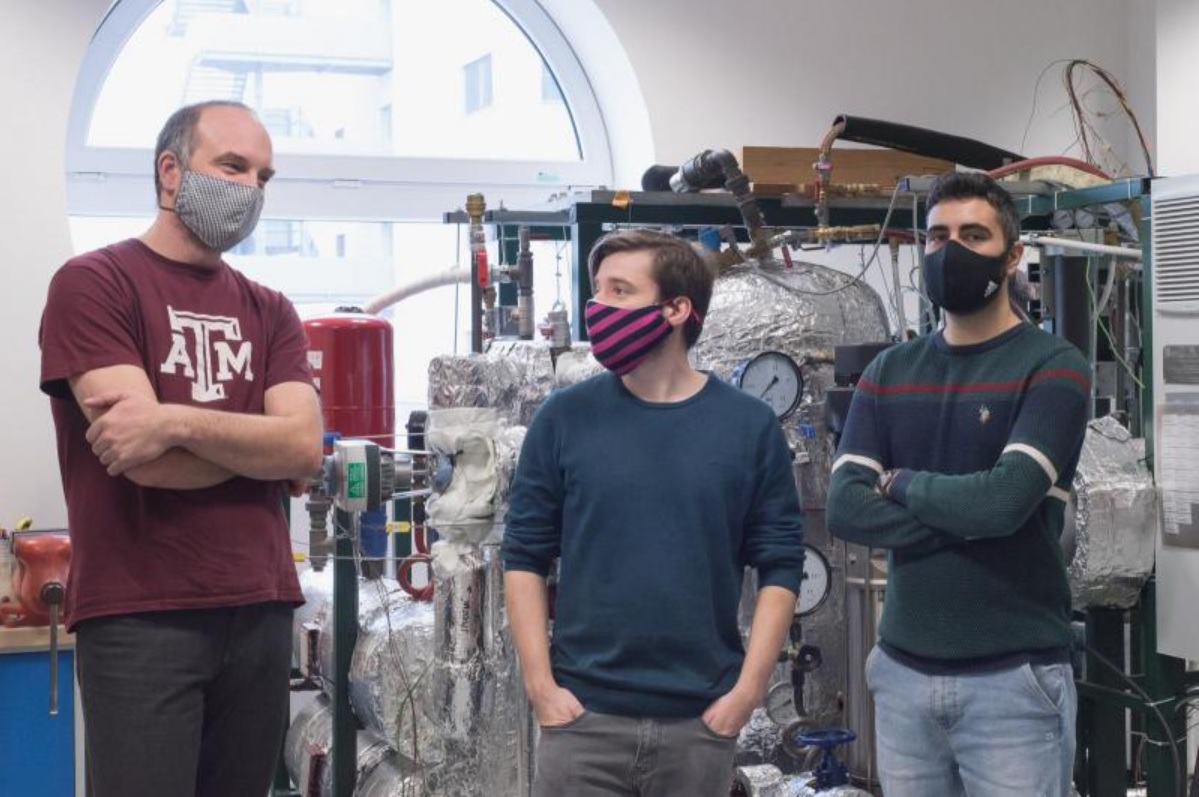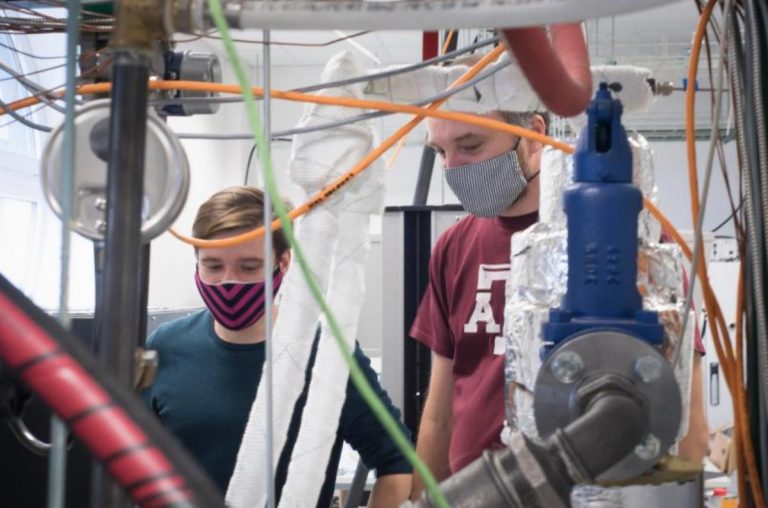Scientists from Brno University of Technology will be conducting new research in the field of nuclear energy. The experiments are meant to shed new light on potential accidents in nuclear reactors, such as the one that wreaked havoc in Fukushima in 2011. The team will be using state-of-the-art technology, unavailable until now in the Czech Republic. Photo credit: Lenka Gumulec.
Czech Rep. Nov.14 (BD) – Brno University of Technology (BUT) is inaugurating a new project focused on nuclear energy. A team of scientists will be using state-of-the-art technology, until now only employed in Japan, Sweden and South Korea, to study potential accidents in nuclear reactors. The research will focus on simulating what is known as “boiling crisis” – a phenomenon that occurs within nuclear reactors when its temperature rises sharply. The experiments will hopefully shed new light on the prevention of accidents like the one that devastated Fukushima in 2011.
Karel Katovský, from BUT’s Faculty of Electrical Engineering and Communication, explained the importance of such simulations:
“Tens of thousands of fuel rods are stored in one single nuclear reactor. In the fuel within the rods, a fission reaction takes place, which causes the rod to heat up strongly. There are only millimeter gaps between them, through which water flows and cools them. In case of insufficient cooling, they can overheat and cause a so-called boiling crisis. Of course, this is not usually the case, but it is part of the safety assessment of a nuclear reactor. Theoretically, the cooling system can fail, so we need to know when such a situation can occur and how the fuel rod covering behaves at such a moment.”

The project will also allow the scientists to study different materials that can be used to build the rods within nuclear reactors. New materials could lead to enhanced safety and more stable ways to produce nuclear energy. Moreover, the technology available at BUT will allow for some unprecedented studies. Kamil Števanka, a doctoral student working on an experimental loop as part of his dissertation, emphasised the exceptional character of the research being conducted: “Our experiments with this material and the parameters we monitored were the first of their kind worldwide.”
The researchers from the Institute of Power Engineering are not working alone. They have been in a long-term partnership with Texas A&M University, the top university for nuclear research in the United States, and their work is also being carried out in coordination with the Joint Institute for Nuclear Research in Russia.
In the field of nuclear power, 2020 marks the 35th anniversary of the connection of the first Dukovany nuclear unit to the grid, giving Czech power engineers more cause for celebration.







